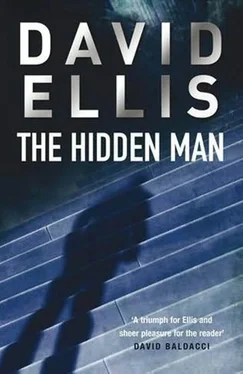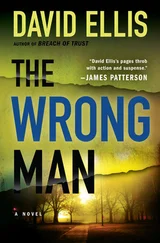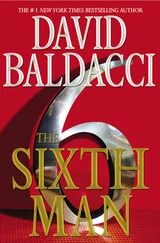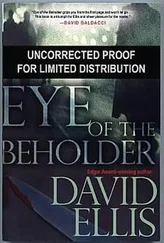From the moment my assistant Marie showed him in, he felt wrong. He presented, frankly, better than most potential clients. He was thin, precisely dressed in an Italian wool suit, a deep dimple in his shiny blue tie, gray hair immaculately combed. It was clear that whatever he wanted from me, he’d be able to afford the freight. So far, so good.
But still-wrong. His hand was moist when I shook it, and he didn’t make eye contact. As I retreated behind my desk, he closed the office door behind him. It wasn’t uncommon for visitors to want discretion with their lawyer, but still-it was my office, not his. It was a power move, establishment of control.
“Mr. Smith,” I said, wondering if that was his real name. I was assuming this was a criminal matter, and I like to guess the crime before the client tells me. A slick guy like him made me think of financial crimes or pedophilia. If it was the latter, this was going to be a very short conversation.
Smith didn’t seem too impressed with the surroundings. I wasn’t, either. I had a couple of diplomas on the walls and some pieces of art picked up at an estate sale and some bookcases filled with law books I never use. My brother had given me a couch that I put near the back of my office, though I wasn’t sure if that made the place look too cramped.
In his thousand-dollar suit, Smith looked like a fish out of water. He had one of those pocket squares that matched his tie. I never owned a pocket square in my life. I hate pocket squares.
“We’ll require your services, Mr. Kolarich. Can you tell me your hourly fee?”
In my recent reincarnation as a solo practitioner, I find that I have three categories of clients. Category one is a flat fee to handle a small criminal matter, like a DUI or misdemeanor. Category two pays me by the hour, with an up-front retainer. Category three is the client who promises to pay but stiffs me instead.
My hourly fee, where applicable, is usually a buck fifty. But I decided, then and there, that it was time to have an escalating fee schedule, depending on whether my client wears a pocket square.
“Three hundred,” I answered. It felt nice just saying it.
Smith seemed amused. Well-bred as he was-or was trying to appear-he stifled any comment. He was getting a mark-up, and he wanted me to know that he knew.
It usually took me a full half hour to dislike someone, but this guy was narrowing that window considerably.
“Three hundred an hour would be acceptable,” said he.
Then again, maybe I was being too hard on the guy.
“You’re young,” Smith said to me. “Young for a case like this.”
“Mozart composed a symphony before the age of ten.”
“I see.” I didn’t get the impression that Smith was placing me in the same category as the prodigy Amadeus.
“You came to me, friend,” I reminded him.
He didn’t offer a response, but I could see that he wasn’t here by choice. Why, then, was he here?
“The man you’ll be representing is charged with first-degree murder, Mr. Kolarich.”
That sounded like something important, so I reached for my pen and notepad. I wrote, pocket square = big fee .
“The man he killed was a sexual predator,” Smith told me.
My would-be client killed a pedophile? Well, if you’re going to pick a victim, there’s none better.
“And who are you to this guy?” I asked Smith.
He thought about that for a while. It didn’t seem like a hard question to me.
Typically, if it’s not the defendant himself reaching out for counsel, it’s a family member on his behalf. I didn’t get the sense that Smith fell into that category.
“As you can imagine,” Smith finally said, “sex offenders usually count their victims in the multiple, not the singular.”
Right, but he was being vague. Talking around the subject. I do that all the time, but I don’t trust people who remind me of myself.
It didn’t feel like Smith, or someone he loved, had been victimized by this pedophile, which was what he was suggesting. He wasn’t carrying that emotion. I like to think I can read a guy, and his face wasn’t registering that kind of pain. I was getting disdain, though it seemed to be directed more at me than anything else.
“You’ll take the case at three hundred dollars an hour,” he informed me. “Or someone else will gladly handle it.”
With that, Smith pushed himself out of the chair and remained standing before me. I’m not a big fan of ultimatums, unless I’m the one giving them. It’s been said that I have a problem with people telling me what to do. I think I was the one who said that.
Smith checked his watch. He’d obviously figured that I would jump at the chance for a case like this, but I hadn’t. In his mind, I was either stubborn or stupid.
But, I noted, he hadn’t walked away. He didn’t like bidding against himself, but for some reason he was set on hiring me for this case, and he knew he needed to give me more.
“When was he arrested?” I asked.
“September,” he said. “Of last year.”
“September-of ’06?” If this were a single-defendant case, as it seemed to be, that meant the trial couldn’t be far away.
“Four weeks from today,” Smith informed me.
“Well.” I waved a hand. “We’ll have to get the trial date kicked.”
“That won’t work.”
Sometimes I smile when I’m getting really annoyed with someone. I smile and count to ten. After reaching the count of six, I said, “We need to be clear on a few things, Smith. If you want to pay me, that’s fine. I don’t care who’s doing the paying as long as the money is there. Right? But you don’t decide what will work. My client and I make those decisions. You’re not my client, nor are you even related to this client. So you have no say. You’re an ATM machine to me and nothing more. And I’m not taking a first-degree on one-month’s notice.”
Smith nodded at me, but he wasn’t agreeing with me. Kind of like how I smile when I’m pissed off. “You’ll consult with your client on that,” he said.
“I’ll tell this client what I just told you, and if he doesn’t like it, he won’t be my client.”
Smith considered me. I wanted to wipe the smug expression off his face. Maybe I’d use his pocket square to do it. Finally, the briefest hint of a smile appeared.
“The client is an old friend of yours,” he said. “The client is Sam Cutler.”
Sammy. It came at me at once, a tidal wave of images, sights and sounds and smells from so long ago. So this was why Smith had picked me.
“Audrey,” I said. “Sammy killed the pedophile who killed his sister, Audrey?”
“Correct.” Smith nodded. “Griffin Perlini, you’ll recall.”
Even now, I physically shuddered at the name. The bogeyman to a seven-year-old. I could attribute many sleepless nights, and many burned-out lightbulbs, to that name. The man who single-handedly laid wreck to the Cutler family.
“There are those of us who believe that Mr. Cutler should not be punished for that act,” Smith said.
Of all the images that might stick, for some reason it was this: Audrey Cutler, a year and a half old, staggering around on a toddler’s legs in the grass backyard, Sammy hovering behind her to catch her fall. One of the other kids made a joke about how Audrey walked- she looks retarded or something like that. Sammy didn’t say anything at the time; he only looked at me. When Sammy’s mother called for Audrey to come in, Sammy carried her inside. By the time he returned to the backyard a few minutes later, I was already holding the kid down, and Sammy and I made sure he never had anything but compliments about Audrey’s walking ability in the future.
I didn’t know how to feel about all of this. Since Talia and Emily, most of my emotions had atrophied. I felt tension and panic begin to flex their muscles.
Читать дальше












